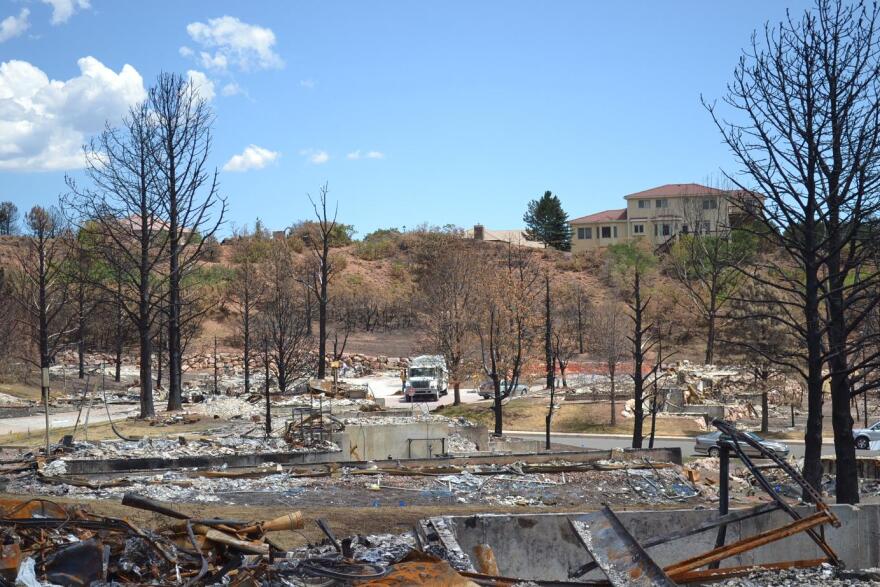A new report[.pdf] by a California-based housing and real estate data firm puts Colorado second only to California in a ranking of the number of homes at a “very high” risk of being damaged or destroyed by wildfires.
Santa Ana-based Core Logic Inc. studied thousands of residential properties and gave them wildfire risk rankings from “low” to “very high” in 13 western states; California, Colorado, Arizona, New Mexico, Utah, Nevada, Washington, Oregon, Idaho, Montana, Wyoming, Oklahoma and Texas.
In the “very high” category, California scored at the top with 49,258 homes considered to be at risk of damage or destruction, and Colorado at a close second with 48,901 properties.
The findings may not come as a surprise to agencies like the US Forest Service and our reporting partners at I-News, which have tracked a sharp risein the number of homes being built recently in the “wildland urban interface,” or WUI.
WUI is the acronym given to the lands often privately held or owned by counties or local governments that belie national forest land. Colorado’s second most destructive wildfire this past summer, the High Park Fire, destroyed 259 homes, many of them in the WUI.
The Core Logic report also breaks down the recent costs – and they’re rising – to suppress wildfires that threaten homes and infrastructure in the WUI and makes this recommendation:
Wildfire risk data can provide valuable information for insurance providers and financial services companies. Understanding where risk is present and the potential exposure of homes to wildfire-related damage are important components to the scientific analysis of wildfire risk within underwriting and for related financial decisions. Knowing the relative geographic risk of wildfires may also facilitate mitigation initiatives that have the potential to reduce the amount of property damage.
In Colorado, some policymakers have already begun discussing changes to state and local laws that could force property owners to shoulder more responsibility for wildfire mitigation.
This is no doubt going to spark a spirited discussion and debate in the coming months.
New technologies and building materials have lately allowed more new homes to be built more “firewise,” but as Colorado State University Professor Doug Rideout noted to me in a recent story, this has also brought unintended consequences:
As we make this a more desirable place to live and to be, what happens is we see more and more development and more highly valued development.






